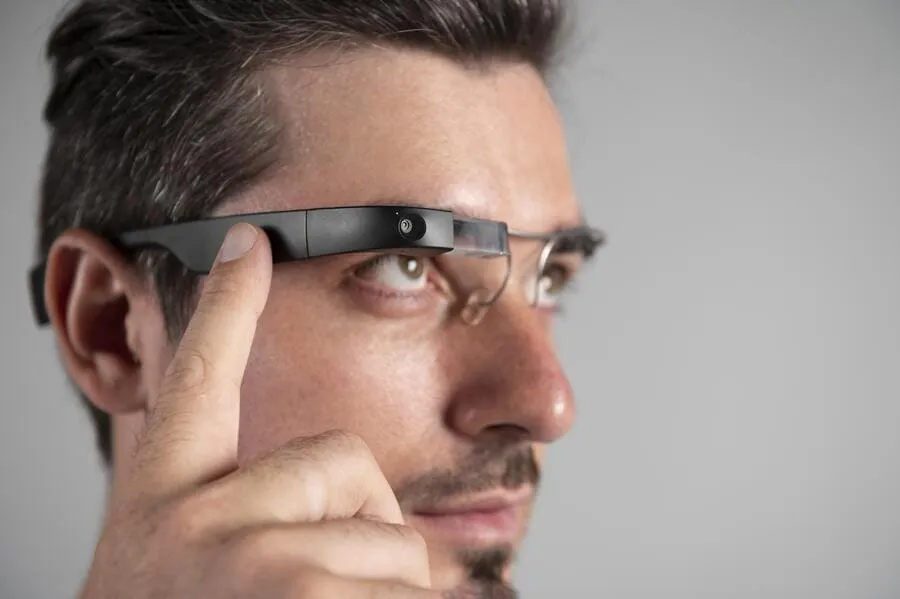
The Wearable Revolution: How Meta Smart Glasses Are Changing Daily Life
The wearable revolution is reshaping how we live with connected devices like smartwatches, fitness trackers, and now Meta smart glasses. These AI-powered glasses merge artificial intelligence, augmented reality, and sleek eyewear design to help us capture, connect, and communicate seamlessly.
- Everyday integration: Enhances life without disruption
- AI at the core: Voice assistants, real-time translation, hands-free support
- Fashion-first design: In partnership with Ray-Ban and Oakley
What Are Meta Smart Glasses?

Unlike traditional eyewear, Meta Smart Glasses integrate cameras, speakers, microphones, and displays into stylish frames. Designed with Ray-Ban and Oakley, they overcome earlier smart glasses’ flaws by prioritizing fashion, privacy, and user experience. The result is everyday eyewear with AI and AR features.
Design & Partnerships: Ray-Ban, Oakley, and Beyond

Meta collaborated with Ray-Ban and Oakley to combine style with cutting-edge technology. Ray-Ban Meta keeps classic looks like the Wayfarer, while Oakley Meta caters to sports and active lifestyles.
Core Features of Meta Smart Glasses

Camera & Video
- Capture high-res photos and videos hands-free
- Voice commands: “Hey Meta, take a photo”
- LED recording indicators for privacy
Audio & Communication
- Hands-free calls and messaging
- Meta AI voice assistant for translations, reminders
- Music and podcast playback via open-ear speakers
Display Technology
- In-lens heads-up notifications
- Real-time captions and translations
- Navigation and contextual overlays
AI & Neural Upgrades
- Conversational AI with contextual awareness
- Image recognition for objects and landmarks
- Neural wristband gesture control
How Meta Smart Glasses Work

Hardware
- Custom AI processor
- Battery: 5+ hours, wireless charging
- Connectivity: Wi-Fi, Bluetooth
- Sensors: accelerometer, gyroscope, ambient light
Software & AI Integration
- Meta AI assistant for hands-free control
- Meta View companion app
- Hybrid local + cloud AI processing
Everyday Applications

- Communication: Calls, notifications, voice messages
- Productivity: Navigation, reminders, scheduling, translation
- Entertainment: Music, podcasts, live streaming
- Accessibility: Audio descriptions, gesture controls, live captions
Privacy & Ethical Considerations

Privacy safeguards include LED indicators, encrypted data storage, and customizable consent settings. However, ethical concerns remain around surveillance, social acceptance, and data ownership.
Comparing Meta Smart Glasses to the Competition
- Google Glass: Enterprise-focused, less consumer appeal
- Snap Spectacles: AR effects, weaker AI integration
- Amazon Echo Frames: Voice assistant only, no camera/display
- Apple AR Glasses: Highly anticipated, ecosystem-driven
What’s Next? Roadmap for Meta’s Wearable AI
- Expanded AR overlays
- Longer battery life
- Gesture-based controls
- Cross-device integration with VR & Meta ecosystem
Challenges for Adoption
- Technical: Battery, display in sunlight, miniaturization
- Social: Privacy concerns, affordability, style
Conclusion: Shaping the Future of Wearable Tech

Meta Smart Glasses mark a new chapter in wearable tech—blending AI, AR, and design. With continuous hardware improvements, expanded AI capabilities, and evolving AR features, they’re positioned to become the next essential device in our digital lives.





